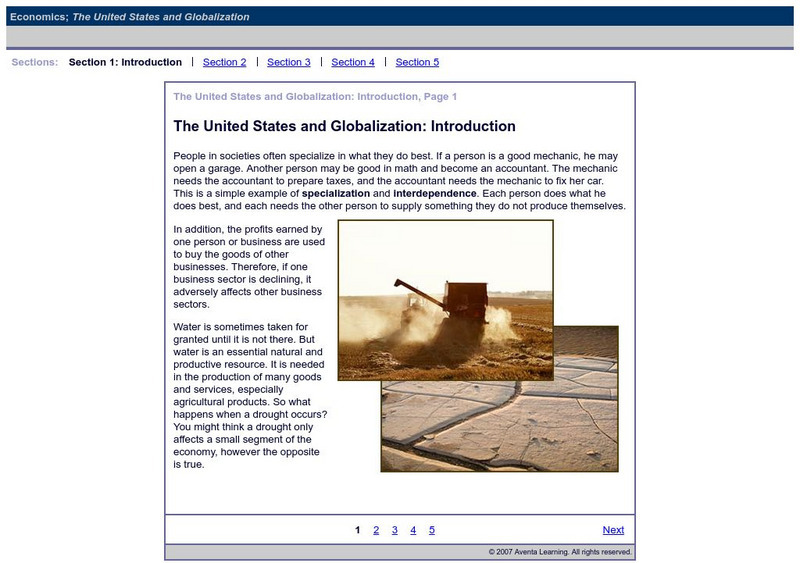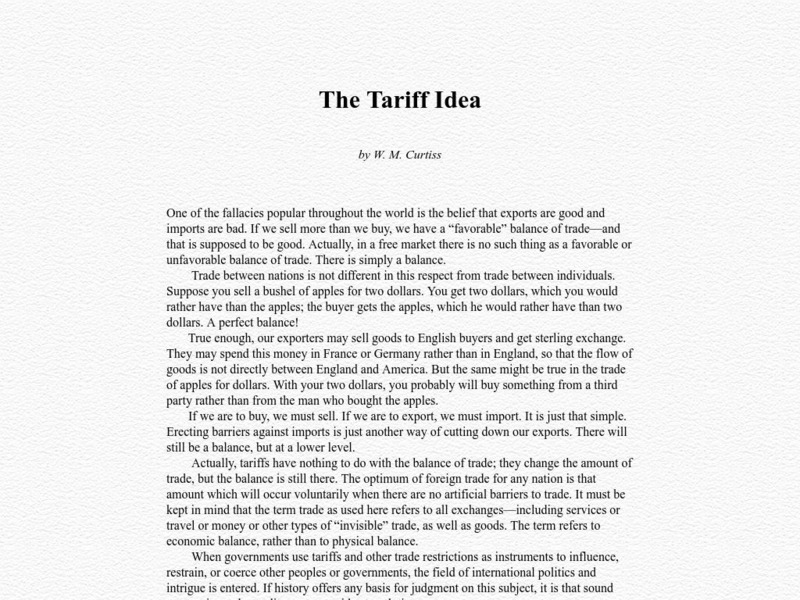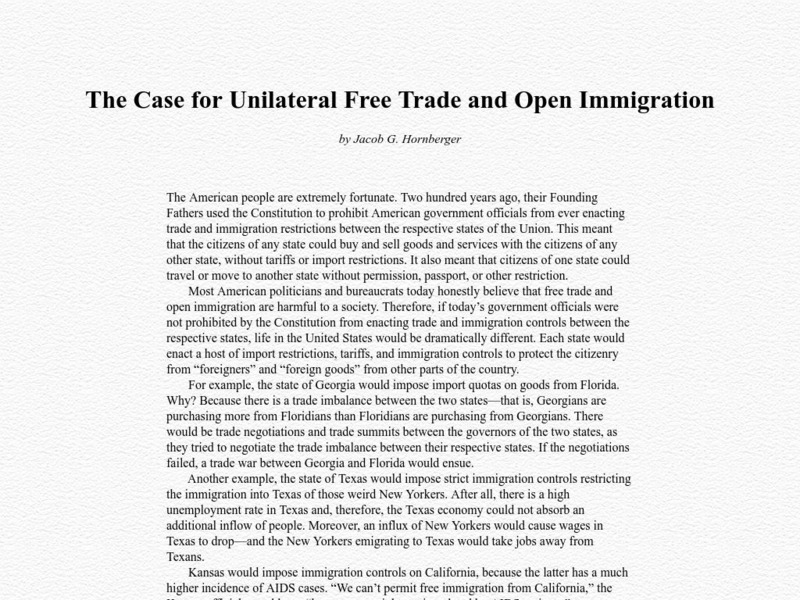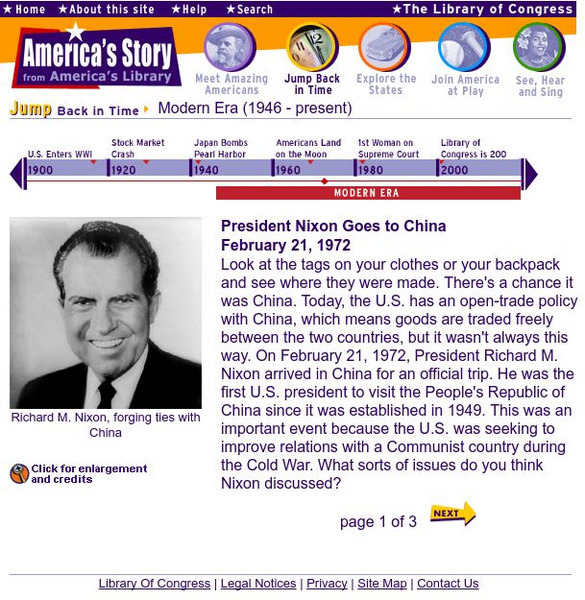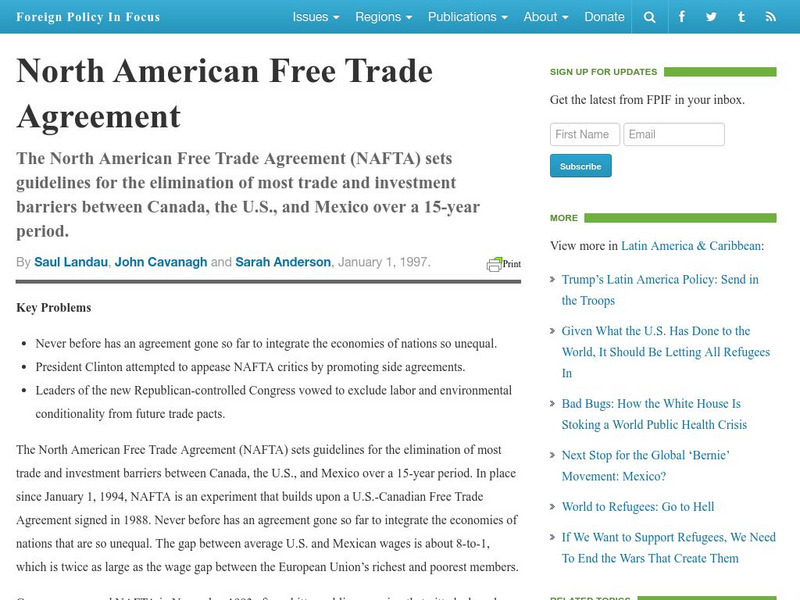Hi, what do you want to do?
Curated OER
Arkansas and NAFTA
Build literacy through social studies and reading strategies. This lesson focuses on using pre-reading, vocabulary building, and comprehension questions to boost literacy while educating learners on international trade, NAFTA, and...
Curated OER
Agricultural and Industrial Policies of the U.S.
Students examine the impact of laws and government policies on the agricultural and industrial economic systems. From a list of topics, they select one area and create timelines of at least ten related government activities. In...
Curated OER
Trading Around the World
Students role play as international traders from different continents. They negotiate prices and resolve trade barriers to better their understanding of free trade.
Department of Defense
Do Dea: The United States and Globalization
This self-guided unit addresses the economic interdependence of communities and countries across the globe and the economic development that is taking place. Included are lessons, self-assessments, background information, and learning...
Other
Amatecon: The Tariff Idea
This article explains the effects tariffs have on the country issuing them as well as the recipient country.
Other
Future of Freedom Fdn.: The Case for Unilateral Free Trade and Open Immigration
This article by Jacob G. Hornberger is an essay in the book, The Case for Free Trade and Open Immigration, edited by Richard M. Ebeling and Jacob G. Hornberger. In it, Hornberger gives a hypothetical view of how life in the United States...
Library of Congress
Loc: America's Story: President Nixon Goes to China
Much of our dependence on Chinese-manufactured consumer goods owes itself to the diplomatic efforts of President Richard M. Nixon. Learn how this historic relationship began during the early 1970s.
Council for Economic Education
Econ Ed Link: u.s. Farmers and the Cuban Embargo
This lesson explores trade barriers in general and why some U.S. farmers want one specific trade barrier, the Cuban embargo, completely eliminated.
Federal Reserve Bank
Federal Reserve Bank of Atlanta: Trade: Why Do Nations Trade?
Basics from key terminology to why we trade are featured alongside introductions to foundational concepts such as production possibilities frontiers, absolute and comparative advantage, trade barriers, and free trade versus protectionism.
Institute for Policy Studies
Foreign Policy in Focus: North American Free Trade Agreement
This article is written by Sarah Anderson, John Cavanagh, and Saul Landau of the Institute for Policy Studies (IPS) in Foreign Policy in Focus, Volume 2, Number 1, January 1997. Key points, problems, and recommendations are discussed.








